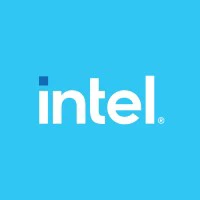Intel Corporation (INTC) Shows Bearish Signals Amid Long-Term Growth Potential
Summary
As of the latest analysis, Intel Corporation (INTC) is rated a Hold due to its blend of short-term bearish signals and long-term growth prospects, with strategic investments in AI and foundry sectors indicating potential for future growth despite current volatility and fundamental overvaluation concerns.
 Technical Analysis of Intel Corporation (INTC)
Technical Analysis of Intel Corporation (INTC)
Intel Corporation (INTC) closed the last trading session at $37.20, marking a decline of $1.13, or -2.95%, from the previous day. This recent movement shows significant volatility when compared with the past year's high of $51.28 and a low of $26.86. The stock's Relative Strength Index (RSI) of 29 indicates that it is currently in an oversold position, which could signal a potential reversal or bounce in the near term. However, the stock is trading below its 50-day moving average of $42.94 and its 200-day moving average of $39.78, suggesting a bearish trend.
The Moving Average Convergence Divergence (MACD) is at -0.83, further indicating a bearish phase for INTC in the medium term. The Average True Range (ATR) shows a volatility indicator of approximately 3.77, highlighting the stock's recent swings.
Fundamental Analysis of Intel Corporation (INTC)
Intel Corporation, with a market capitalization of $157.28 billion and an EPS of 0.4, is currently trading at a Price-to-Earnings (PE) ratio of 93, which considerably high, indicating that the stock may be overvalued based on its current earnings.
Recent news suggests that Intel is betting big on its foundry business and the AI sector with its new Gaudi 3 processor, aiming to take on competitors such as NVIDIA. This move, coupled with the geopolitical tailwinds favoring domestic production, signifies Intel's strategic pivot towards areas with significant growth potential. However, the company has reported substantial losses in its foundry efforts, expected to increase in 2024. This could be a concern for investors looking for short-term profitability.
Intel's financial health, characterized by its large market cap and volume trading, shows resilience. However, the high PE ratio and the discounted cash flow (DCF) of -1.25 point to potential overvaluation concerns.
Market Sentiment and Analyst Consensus
The sentiment around Intel is mixed, with a consensus ranking of "Hold" from analysts. The target projections range widely from $17 to $72, with a consensus target of $41, signaling optimism about a potential upside from the current levels. Notably, the number of analysts rating the stock as a 'buy' (12) slightly outweighs those recommending to 'hold' it (16), suggesting some confidence in the stock's future prospects despite the current uncertainties.
Intrinsic Value and Long-term Investment Potential
The intrinsic value, indicated by negative DCF, suggests the market might currently overvalue Intel. A careful assessment of Intel's long-term investment potential must consider its strategic ventures into the AI and foundry sectors. While these investments currently burden its short-term financial performance, they could significantly enhance Intel's market position and financial health in the long run, tapping into the burgeoning demand for AI capabilities and secure, domestic semiconductor manufacturing.
Conclusion: Evaluation and Investment Positioning
Considering the aforementioned analysis, Intel Corporation (INTC) appears to be a "Hold" for the immediate term. The stock demonstrates a blend of short-term bearish signals with long-term growth prospects. Given its current oversold position and strategic moves towards high-growth areas, Intel may appeal to investors with a higher tolerance for risk and a long-term investment horizon.
For the next trading day and the upcoming week, investors might look for signs of stabilization or a potential reversal as indicated by the stock's technical oversold condition. However, significant investment in Intel should be approached with caution, factoring in its current fundamental challenges and the broader market sentiment.
The long-term investors could find Intel's focused shift towards the AI and semiconductor foundry market promising, possibly leading to substantial returns as these sectors mature. However, this is contingent upon successful execution of its strategic initiatives and stabilization of its foundry business losses. As such, maintaining a "Hold" position allows investors to watch for signs of improvement in fundamentals and market sentiment alignments before committing to a long or short position.



 Sign In
Sign In